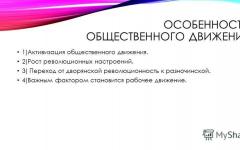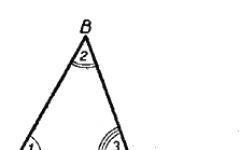"Polar bear" is an unofficial name. Like others: “Polar Owl”, “White Swan”, “Black Dolphin”. In fact, all colonies have alphanumeric names. This one is IK-8, located in Labytnangi.
Convicted men come here for the first time. There are about seven hundred of them in "White Bear". They were mostly convicted for drug-related crimes: possession, sale. And for crimes against the life and health of citizens.
Living quarters, eating places, school, bakery and workshops, sports ground.

Prisoners are allowed video communication with relatives. About once a month they can see their loved ones on the screen. In-person dates are also allowed.

School
More precisely, an evening class assigned to the eighth Labytnang school. Convicts who do not have a complete secondary education and have not reached the age of thirty are required to receive an education in places of deprivation of liberty. Teachers strictly control this moment - they ask for copies of certificates, and if they are not available - at the beginning school year By order, they are enrolled in evening school.

Here they receive incomplete secondary and specialized secondary education. They issue a certificate.

The teachers are visiting, from the eighth school. They are separated from the students by bars.

At the entrance they warned us to only take photographs of those who gave their consent. Head of the colony Sergei Skachev:
– If anyone is against it, raise your hand. Are you against it? Two who are against - go to this corner. And you shoot so that they don’t get into the frame - that’s for me.

I repeat, those under thirty are obligated to study. However, older people also receive education. There is a person who is over fifty who also expressed a desire to study.

Dining room
The colony has its own bakery. They also make their own pasta and grilled chicken.

The prisoners bake the bread themselves. Some of them came here with a profession, others have already studied here.

The smell of bread is incredible. They treated me to a piece. Grey! Awesome!

Lunches start at 11 am. The menu contains four groups: general (minimum nutritional standards) and special groups, people with various diseases go there, diabetics, for example. Four types of porridge: semolina, oatmeal, pearl barley, millet.

Meal hall

Shop
In a small store on the territory of IK-8, the assortment is not displayed in windows. The price list is just posted. Toothbrush and paste, various canned goods, instant soups, seeds... Prices are always compared with regional prices and should not exceed. The freshness of the goods is controlled. However, the products do not stay stale, says the seller. The most popular are sweets: condensed milk, sugar, pies, marshmallows, candies, Snickers, chocolates. And cigarettes.
Smoking, however, began to decrease. The tobacco control law has had an impact. And an increase in prices for tobacco products.
Convicts are provided with hygiene items in full, however, in order to have a wider range, Colgate and more expensive toothbrushes are brought into the store.
Convicts receive wages, and those who do not work receive money from their relatives.

Living spaces
The detachments are housed in barracks-type premises. Each has about a hundred people.

Sports ground with exercise equipment - right below open air. This one is empty, but I saw that they were busy on the other one. There is an opportunity to exercise every day. Even in winter.

Crossover

Bench and press machine

The squad's courtyard.


Inside. The beds are bunk. Today is Wednesday, so the bed is like this.

Each bed has a nameplate and photo.

The option for making beds has been determined and is the same for all convicts.

A room where they watch TV, write letters, listen to lectures.

Awards for the squad's participation in sports and cultural events

The dining room. There is a kettle, stove, water. Here you can drink tea, eat food that was given by relatives or bought in a store. Today (again) is a sanitary day, the refrigerator is defrosting, so everything is laid out on the table.

Chapel
The former bakery premises were converted into a chapel. A frame has been made on which it is planned to hang the bells. With God's help, say the colony staff. The church promised to help and bring bells.


A strictly censored library of Orthodox literature is collected here, and there is a prayer room. Baptisms happen, exactly once a quarter. You can come and pray every day, the main thing is not to fall out of the general routine. Each squad has a designated time. Now there is only an orderly here.

Production area
We pass through the sanitary checkpoint into the production area. Here prisoners change clothes, receive tools and leave for work sites. They work during the day, leave work in the reverse order: they change into the clothes they are wearing in the detachment and disperse to their detachments.

This model takes about a year to assemble. It is quite large, about a meter long. Each board, the craftsmen say, needs to be processed all day. And the planks are slightly thicker than a match.

Vessel diagram

And this is another workshop. Wood cutting here
Both young and old order. They choose songs from the eighties, nineties... And more modern ones. A database of censored songs has been created.
They also play movies. Mostly historical, patriotic, educational films.
“We don’t have the right to show premieres; we show films only after they are shown on central television,” said the political instructor.
Applications are placed here if they want, for example, to congratulate a friend on his birthday.

Head of the colony - Colonel of the Internal Service Sergei Viktorovich Skachev

Convicts require a lot of work from psychological services and educators, says the head of the colony. - It all starts with the daily routine, with discipline. Convicts get used to living within the law; many, having acquired a profession, then get a job. Many, especially from among the small peoples of the North, receive a complete secondary education, then acquire professions that are in demand in the region: mason, carpenter, carpenter, cook, welder, fireman.
Most of the convicts are from Yamal, this is Russian policy: the distribution of convicts within the territorial authority. The bulk of those convicted are ours, from Yamal. Each detachment has up to one hundred people. The roster is not permanent; reformed convicts receive conditional early release by court decision.
Recently, more families have begun to be created. About ten community cells have been created this year, just last week last time. Like all Russian citizens, they submit an application to the registry office, and on the appointed day, the future spouse comes here along with the registrar. Applications are submitted to the registry office according to territoriality.
Convicted Russian court For creating a terrorist community, Ukrainian director Oleg Sentsov changed prison colonies for the third time in the last two years. What awaits Sentsov in the new colony and why is he transferred so often - the correspondent of "" looked into it.
How did Sentsov’s “colonial” tour begin?
Ukrainian citizen Oleg Sentsov was convicted on August 25, 2015 by the military court of Rostov-on-Don. He was sentenced to 20 years in prison to be served in a maximum security colony. During the trial, employees of the Federal Security Service declared the Ukrainian director a member of the Right Sector political organization banned in Russia, on whose instructions he allegedly planned explosions on the peninsula.
The first place of his imprisonment in February 2016 was Yamalo-Nenets autonomous region. In September 2017, Sentsov was transferred to correctional colony (IK) No. 18 in the village of Kharpa, and on October 13 - to IK-8 in the city of Labytnangi, also known as the “Polar Bear”.
What is the Polar Bear colony known for?
The Polar Bear prisoners are all those who could have been expected to be executed if Russia had not introduced a moratorium on death penalty: terrorists, serial killers and maniacs. But what makes IK-8 most famous is the reputation of its prison guards: news agencies regularly contain reports of beatings and torture in the Polar Bear.
A journalist from Salekhard, who wished not to disclose his name, told “” that although information about ill-treatment of prisoners is received regularly (for example, the Ura.ru portal reported about this back in 2012), no real investigations are carried out.
Human rights activists rarely confirm prisoners' claims of torture. Perhaps these tortures really do not exist. Perhaps the jailers are somehow able to remove traces of the beatings. Perhaps human rights activists themselves are dishonest. The system is so closed that it is extremely difficult to figure out who is right and who is wrong.
The Department of the Federal Penitentiary Service for the Yamalo-Nenets Autonomous Okrug denies information about the alleged facts of mass beatings of prisoners in the colonies under its jurisdiction. As the department's press service reported today, on April 7, we are talking about publications that talked about the beating of newly arrived prisoners from colony No. 14 (IK-14) by employees of Colony No. 8 (IK-8), located in the Surgut region of Ugra.
As the press service emphasized, after the publication of the materials, the management of the district department of the Federal Penitentiary Service for the Yamal-Nenets Autonomous Okrug ordered an internal audit, as a result of which no facts of violations of the law by correctional facility employees were identified.
IK-8 "Polar Bear" is located in Yamalo-Nenets Autonomous Okrug in the village of Labytnangi. According to some information, the colony has the unofficial status of “red”, that is, it is completely controlled by the administration. At the same time, Colony No. 14, located in the Surgut region near the village of Lokosovo, until recently had the status of “black”, where criminal “authorities” had a certain power over prisoners. Thus, as observers note, the difference in the status of the colonies could be the reason for violence against some prisoners. However, this is just a guess.
Meanwhile, according to experts, in Russian colonies there is a practice of “acquaintance” with prisoners who arrived from other colonies that are not loyal to the administration. “If the administration in the colonies used violence against newly arrived prisoners, I can guess why. As far as I know, the same IK-8 and IK-2, unlike the Lokosovskaya zone, have the status of “red”. And the authorities of the two zones are unlikely to want to change their status to “black”, that is, to have criminal authorities rule among the prisoners there. I believe that in this regard, perhaps such a “warm welcome” was given to the prisoners from the “black zone”. This is so that they immediately understand what the rules are in the zone and do not try to change them. Simply put, through violence, they knock out the “thieves’ spirit” out of them. I do not rule out this version of events,” one of the former security officials shared his thoughts.
In March of this year, the administration of the Federal Penitentiary Service for the Khanty-Mansi Autonomous Okrug officially announced that the Lokosovskaya colony would be closed due to reasons of its economic inefficiency. At the same time, all 806 prisoners will be transferred to other correctional institutions located in the Khanty-Mansi Autonomous Okrug, Yamal-Nenets Autonomous Okrug and the Tyumen Region.
A few days ago, some media and Internet portals reported that the transfer of prisoners from IK-14 to IK-8 is of a “torturous nature.” In particular, the human rights portal Gulagu.net has repeatedly reported about this.
"On this moment 102 convicts were transferred from the colony. The rest are waiting for the stage. The first two batches of convicts, 25 and 29 people, arrived at their destination at IK-2 in the city of Tyumen and IK-8 in the Yamalo-Nenets Autonomous Okrug (Labytnangi). Both stages were brutally beaten. And they are being beaten to this day,” one of the messages said. The portal also published a list of allegedly beaten prisoners of the 14th colony.
Today, another department of the Federal Penitentiary Service, in the Tyumen region, following colleagues from the Yamal-Nenets Autonomous Okrug, denied information about the beating of prisoners from Lokosovskaya IK-14 in the subordinate maximum security colony No. 2 (IK-2). By the way, IK-2 is also called “red” among prisoners.
“On the eve of IK-2, the Federal Penitentiary Service of Russia in the Tyumen region was visited by representatives of the prosecutor’s office for monitoring compliance with laws in correctional institutions of the Tyumen region and members of the regional Public Monitoring Commission, who held conversations with each convict who arrived at the correctional institution, during which they explained that physical force no one used any beatings against newcomers to the colony, and the correctional officers did not see the convicts beaten,” said the press service of the Federal Penitentiary Service for the Tyumen Region.
Convicted men come here for the first time. There are about seven hundred of them in "White Bear". They were mostly convicted for drug-related crimes: possession, sale. And for crimes against the life and health of citizens.
Living quarters, eating places, bakery and workshops, sports ground.
"Street". There are living quarters, a school, a fire station, and a canteen here.
Prisoners are allowed video communication with relatives. About once a month they can see their loved ones on the screen. In-person dates are also allowed.

School
More precisely, an evening class assigned to the eighth Labytnang school. Convicts who do not have a complete secondary education and have not reached the age of thirty are required to receive an education in places of deprivation of liberty. Teachers strictly control this moment - they ask for copies of certificates, and if they are not there, at the beginning of the school year they are ordered to enroll in evening school.

Here they receive incomplete secondary and specialized secondary education. A certificate is issued.

The teachers are visiting, from the eighth school. They are separated from the students by bars.

At the entrance they warned us to only take photographs of those who gave their consent. Head of the colony Sergei Skachev:
– If anyone is against it, raise your hand. Are you against it? Two who are against - go to this corner. And you shoot so that they don’t get into the frame - that’s for me.

I repeat, those under thirty are obligated to study. However, older people also receive education. There is a person who is over fifty who also expressed a desire to study.

Dining room
The colony has its own bakery. They also make their own pasta and grilled chicken.

The prisoners bake the bread themselves. Some of them came here with a profession, others have already studied here.

The smell of bread is incredible. They treated me to a piece. Grey! Awesome!

Lunches start at 11 am. The menu includes four groups: general (minimum nutritional standards) and special groups, which include people with various diseases, diabetics, for example. Four types of porridge: semolina, oatmeal, pearl barley, millet.

Meal hall

Shop
In a small store on the territory of IK-8, the assortment is not displayed in windows. The price list is just posted. Toothbrush and paste, various canned goods, instant soups, seeds... Prices are always compared with regional prices and should not exceed. The freshness of the goods is controlled. However, the products do not stay stale, says the seller. The most popular are sweets: condensed milk, sugar, pies, marshmallows, candies, Snickers, chocolates. And cigarettes.
Smoking, however, began to decrease. The tobacco control law has had an impact. And an increase in prices for tobacco products.
Convicts are provided with hygiene items in full, however, in order to have a wider range, Colgate and more expensive toothbrushes are brought into the store.
Convicts receive wages, and those who do not work receive money from their relatives.

Living spaces
The detachments are housed in barracks-type premises. Each has about a hundred people.

A sports ground with exercise equipment is right in the open air. This one is empty, but I saw that they were busy on the other one. There is an opportunity to exercise every day. Even in winter.

Crossover

Bench and press machine

The squad's courtyard.


Inside. The beds are bunk. Today is Wednesday, so the bed is like this.

Each bed has a nameplate and photo.

The option for making beds has been determined and is the same for all convicts.

A room where they watch TV, write letters, listen to lectures.

Awards for the squad's participation in sports and cultural events

The dining room. There is a kettle, stove, water. Here you can drink tea, eat food that was given by relatives or bought in a store. Today (again) is a sanitary day, the refrigerator is defrosting, so everything is laid out on the table.

Chapel
The former bakery premises were converted into a chapel. A frame has been made on which it is planned to hang the bells. With God's help, say the colony staff. The church promised to help and bring bells.


A strictly censored library of Orthodox literature is collected here, and there is a prayer room. Baptisms happen, exactly once a quarter. You can come and pray every day, the main thing is not to fall out of the general routine. Each squad has a designated time. Now there is only an orderly here.

Production area
We pass through the sanitary checkpoint into the production area. Here prisoners change clothes, receive tools and leave for work sites. They work during the day, leave work in the reverse order: they change into the clothes they are wearing in the detachment and disperse to their detachments.

This model takes about a year to assemble. It is quite large, about a meter long. Each board, the craftsmen say, needs to be processed all day. And the planks are slightly thicker than a match.

Vessel diagram

And this is another workshop. Wood cutting here


And one more workshop. Cut with laser

Right in front of me, the master entered a drawing and an inscription into the core, pressed a button...

And the process began!

The colony has its own radio and television. The program lasts at least an hour. The main broadcast network is educational, social and educational lectures. A share of the airwaves is allocated for congratulations.
Both young and old order. They choose songs from the eighties, nineties... And more modern ones. A database of censored songs has been created.
They also play movies. Mostly historical, patriotic, educational films.
“We don’t have the right to show premieres; we show films only after they are shown on central television,” said the political instructor.
Applications are placed here if they want, for example, to congratulate a friend on his birthday.

Head of the colony - Colonel of the Internal Service Sergei Viktorovich Skachev

Convicts require a lot of work from psychological services and educators, says the head of the colony. - It all starts with the daily routine, with discipline. Convicts get used to living within the law; many, having acquired a profession, then get a job. Many, especially from among the small peoples of the North, receive a complete secondary education, then acquire professions that are in demand in the region: mason, carpenter, carpenter, cook, welder, fireman.
Most of the convicts are from Yamal, this is Russian policy: the distribution of convicts within the territorial authority. The bulk of those convicted are ours, from Yamal. Each detachment has up to one hundred people. The roster is not permanent; reformed convicts receive conditional early release by court decision.








